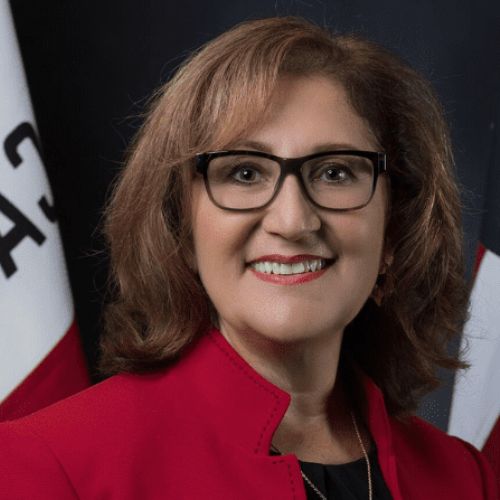Every spring, California legislators offer new ideas or proposed changes to programs and policies that touch the lives of California’s roughly 10 million students, from preschool to K-12 to higher education. Many of these ideas stand to improve opportunity and access for students of color, students from lower-income communities, and English learners – if decision-makers in Sacramento are encouraged to make them a reality.
That’s why each year, The Education Trust–West analyzes proposals for the state budget and new legislation and identifies the top eight greatest opportunities to advance educational equity and justice.
Governor Gavin Newsom’s 2021-2022 state budget includes several of these opportunities. Read our response to Newsom’s budget proposal for an analysis of key funding priorities for moving educational justice forward.
Every spring, California legislators offer new ideas or proposed changes to programs and policies that touch the lives of California’s roughly 10 million students, from preschool to K-12 to higher education. Many of these ideas stand to improve opportunity and access for students of color, students from lower-income communities, and English learners – if decision-makers in Sacramento are encouraged to make them a reality.
That’s why each year, The Education Trust–West analyzes proposals for the state budget and new legislation and identifies the top eight greatest opportunities to advance educational equity and justice.
Governor Gavin Newsom’s 2021-2022 state budget includes several of these opportunities. Read our response to Newsom’s budget proposal for an analysis of key funding priorities for moving educational justice forward.
The Equity 8 for 2021


Governor’s Budget Proposal for Free Application for Federal Student Aid/ California Dream Act Application Completion and AB 469 (Reyes) – The Governor’s budget proposal and AB 469 would require local educational agencies (LEAs) to confirm all 12th grade students complete the Free Application for Federal Student Aid (FAFSA) or the California Dream Act Application (CADAA), unless students opt out of the requirement. AB 469 goes beyond the budget proposal by clarifying the types of nonprofit agencies that may assist with implementation and requiring a data sharing agreement between the California Student Aid Commission and the California Department of Education to monitor compliance.
Applying for financial aid is one of the most important steps as students pursue higher education, and these proposals will boost college-going for low-income students and students of color by building a college-going culture.
Outcome: The Governor’s proposal was approved in the higher education budget trailer bill (AB 132), and will take effect in the 2022-2023 school year. Governor Newsom signed AB 469 on October 6, 2021. Approval of the Governor’s budget proposal and AB 469 are big wins.
Governor’s Budget Proposal Cradle-to-Career Longitudinal Data System – The Governor has proposed $15 million in the 2021-2022 state budget for Phase I of the Cradle-to-Career Longitudinal Data System. Currently, California does not have a connected, comprehensive way to monitor student progress from early learning to higher education, and the lack of this capability keeps us from seeing how well California schools are preparing students for their postsecondary educational journeys. Importantly, a connected data system will also enable the creation of tools that students and counselors can use to ensure students are on track and complete key milestones toward college eligibility. These benefits will be even more critical as California attempts to recover from the pandemic and prepare for future disruptions.
Outcome: Funding for Phase I of the Cradle-to-Career Longitudinal Data System was approved in SB 129, one of the 2021-2022 budget bills. The system and its governing board were created in AB 132, the higher education budget trailer bill. This is a big win.
Governor’s Budget Proposals for Teacher Recruitment and Professional Development – In January, Governor Newsom proposed a combined $545 million for teacher recruitment and professional development in the 2021-2022 state budget. The final budget included $2.9 billion for these activities. Funds will support programs such as the Golden State Teacher Grant Program and Teacher Residency Programs that have been successful in increasing the supply of effective teachers and recruiting and retaining educators of color. Most of the funds for professional development will be used for an educator effectiveness block grant to support teachers in reengaging students and reengaging students and their academic needs. These investments will be an important part of the state’s educational recovery from the pandemic and key to ensuring that California’s teacher workforce reflects the diversity of the state.
Outcome: The Governor and the Legislature approved $2.425 billion for teacher recruitment and professional development in AB 128, one of the 2021-2022 budget bills, and AB 130, the K-12 education budget trailer bill. This is a big win.
SB 737 (Limon) – Updates and Improves California Student Opportunity and Access Program – This bill would update the California Student Opportunity and Access Program (Cal-SOAP) to serve as the state’s primary financial aid outreach and assistance program. Specifically, it would make financial literacy/education and financial aid application completion priorities for all Cal-SOAP projects. This is critical during a year when California is exploring major changes to the financial aid system and the way we support students and families in completing these financial aid applications. The Education Trust–West is co-sponsoring this bill with the California Student Aid Commission.
Outcome: Governor Newsom signed SB 737 on October 6, 2021. This is a big win.
AB 531 (Quirk-Silva) – Requires Unspent Local Control Funding Formula Supplemental and Concentration Funds to Be Used on High-Need Students – This bill is a reintroduction of AB 1835 (Weber) from 2020. AB 1835 would have closed a gap in existing law that allows LEAs to spend supplemental and concentration funds – the money generated by the numbers of English learners, low-income students, and foster youth enrolled in an LEA – for purposes outside of increasing or improving services for these groups (unduplicated students), if those dollars go unspent within the current year. AB 1835 would have required LEAs to use these unspent funds to increase or improve services for unduplicated students in subsequent years. The Governor vetoed AB 1835 because it would have required new spending regulations. This year, the Department of Finance has proposed an alternative that addresses the concern by defining what portion of supplemental and concentration funds must be used in the following year. However, the Department of Finance’s proposal also permits LEAs to fulfill their obligation to increase or improve services without spending their full allocation of supplemental and concentration funds. The Education Trust–West and our partners disagree with this approach and are co-sponsoring AB 531.
Outcome: Assembly Member Patrick O’Donnell (D-Long Beach), chair of the Assembly Education Committee, did not permit AB 531 to be heard. It is a two-year bill that is unlikely to be reconsidered in 2022. The Department of Finance’s proposal to address the “carryover” issue was enacted in AB 130, the K-12 education budget trailer bill.
AB 595 (Medina) – Requires Consultation and Independent Analysis Before Changing University Admission Requirements – This bill is a reintroduction of AB 1930 (Medina) from 2020, a bill that was held by the Senate Appropriations Committee. It would require the California State University, and ask the University of California, to consult stakeholders before adopting changes to eligibility requirements. The bill also requires an independent, third-party analysis and an implementation committee to oversee the change if it is approved. Assembly Member Medina authored the bill in response to concerns expressed by ETW and many other equity groups about the CSU proposal to increase the number of courses in quantitative reasoning required for admission.
Outcome: Assembly Member Medina decided to hold this bill in the Assembly Appropriations Committee and continue gathering input from stakeholders. He plans to continue monitoring the issue and evaluate CSU’s consideration of the proposal concerning quantitative reasoning eligibility.
AB 1456 (Medina) – Cal Grant Reform – Financial aid for college students has not kept pace with the cost of attendance. This bill would reform the current Cal Grant program and the Middle Class Scholarship so that state financial aid reaches more students and provides higher levels of financial assistance. Amongst the many changes, this bill would eliminate some of the eligibility requirements that block older students from accessing awards, remove the Grade Point Average verification requirement for community college students, and use the new federal Student Aid Index to determine the level of financial need. These changes will ensure more Californians have access to an affordable degree.
Outcome: Governor Newsom vetoed AB 1456 on October 8, 2021, noting the bill would increase state costs in the hundreds of millions of dollars and that changes like this should be considered as part of the budget process. Although AB 1456 was vetoed, some of its most important provisions were enacted in the state budget via AB 132, the higher education budget trailer bill. These changes removed financial aid eligibility requirements for community college students that were tied to age and time out of high school, a victory for hundreds of thousands of students.
SB 246 (Leyva) – Reimbursement Rate Reform for Early Learning and Care – This bill would require the Department of Social Services to establish a single reimbursement rate for early learning and care programs, including variation for regional costs and quality adjustment factors. The new reimbursement rate structure would increase current rates, improve the state’s ability to maintain access and quality, and address problems such as inadequate teacher compensation by ensuring that ongoing rates more accurately reflect the true cost of care. A streamlined reimbursement rate system is also a recommendation from the Master Plan for Early Learning and Care (2020), the California Assembly Blue Ribbon Commission on Early Childhood Education Report (2019), and The First 5 California Rate Reform Stakeholder group whitepaper.
Outcome: SB 246 is a two-year bill and may be considered in 2022, but in the meantime, AB 131, the early childhood education budget trailer bill, enacted key parts of the bill. It increased reimbursement rates for childcare and preschool programs through cost-of-living adjustments and by setting reimbursement levels at either the regional market rate or the new standard reimbursement rate depending on which is highest.

